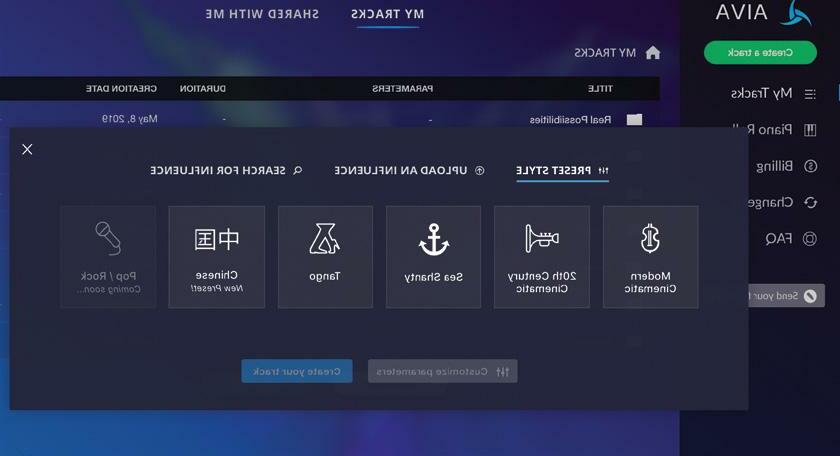
4 minute read
The Influence of AI on Music
HOW IS AI WORDS MARISA CUTILLAS REVOLUTIONISING
THE MUSIC INDUSTRY?
Artificial Intelligence (AI) is an important part of our daily lives, with approximately 91 per cent of leading businesses having ongoing investment in this technology. AI can improve work productivity, create more jobs than it destroys, and boost human safety (for instance, in the realm of selfdriving cars). AI is also being used in the creative arts – including architecture, science, the fine arts, and music. Such is its importance in this realm that Ramón López de Mántaras of the Artificial Intelligence Research Institute in Bellaterra, says, “Rather than just seeing the computer as a tool to help human creators, we could see it as a creative entity in its own right.” For Bellaterra and many others, the concept of ‘computational creativity’ indicates that a creative idea does not have to arise from ‘inspiration’ or ‘intuition’. There is no reason why a creative work cannot arise from a scientific procedure. Let’s take a look at just a few ways AI is making musical composition and enjoyment more accessible, fun, and practical.
COMPOSING MUSIC WITH AIVA
When it comes to AI-based music composition, one of the top applications is AIVA, which allows you to choose a predefined style (for instance, Old School Rap, Jazz, or Fantasy) or upload inspirations in MIDI or MP3 formats for use as the basis of a new musical composition. Creators usually start by choosing a style then customising their tracks, clicking on their chosen duration, pacing, instrumentation, and more. The Instrumentation button alone is one that merits serious experimentation. For instance, if you choose the Modern Cinematic style, the range of instrumentation offered is wide. It includes Epic Orchestra, Symphonic Orchestra, String Ensemble, Piano & Strings, and many more options. You then press ‘Create Track’ to generate a composition, and add the result to your tracks list. The app also allows you to file your different compositions in an organised fashion.

The magic of the app doesn’t end there. You can also view your track and edit it, making changes to the chords, bass, melody, tempo, instrumentation, and more. When you’re satisfied, download your piece and share it with the world!
JUKEBOX BY OPENAI
Having downloaded and experimented with a few AI music apps, I have to say that this one was particularly entertaining and I did end up spending a few hours on it. Jukebox allows you to feel a little closer to your favourite musicians of all time. Simply choose a genre, artist, and lyrics, and the app outputs a completely new sample. As such, you can choose songs in the rock genre that sound like an Elvis Presley song, a heavy metal tune in Metallica style, or a pop song similar to one by The Weeknd. What makes this app different is that it is able to capture human voices, as well as the expressivity and subtle timbres that give songs their unique makeup. This is made possible by using an autoencoder that compresses raw audio to a lower-dimension space by discarding bits of information it deems irrelevant. Once a new audio track is generated in this compressed space, it is upsampled back to raw audio space. Before working on Jukebox, the Open AI team had devised MuseNet, which synthesised music based on large amounts of MIDI data (MIDI. or Musical Instrument Data Interface, is a specific language that allows computers, musical instruments, and other hardware to communicate). What makes Jukebox so unique is that it uses raw audio (which has a longer range structure and much greater diversity) to understand and make music.
ADDITIONAL USES OF AI
AI is not only being used to compose music. It is also improving the listening experience and helping music producers in various practical ways. For instance, Spotify uses big data to influence your listening habits. Through dedicated algorithms, it analyses musical releases and matches them up to potential listeners. AI is additionally used to mix and master music with greater ease. It can generate chords based on a sample, or offer a variety of suggested beats.
APPS TO TRY
In addition to AIVA and Jukebox, you can experiment with apps like Amper Music, Ecrett Music, and ORB Composer. Ecrett is particularly great for creating soundtracks for your videos. Just upload your video file and select the type of scene and its mood (choose from Travel, Fashion, and Party, to name just a few scenes). When you have made your choice, click on the Create Music button and enjoy your professional sounding video! One question that may come across your mind is: who owns the copyright to AI-generated music? The answer, says the US Copyright Office, is that any creative work made via AI cannot be copyrighted because the law only protects works “founded in the creative powers of a human mind.” The EU still lacks a unified framework regarding this matter, though some countries, like Portugal, agree with the American viewpoint. e










